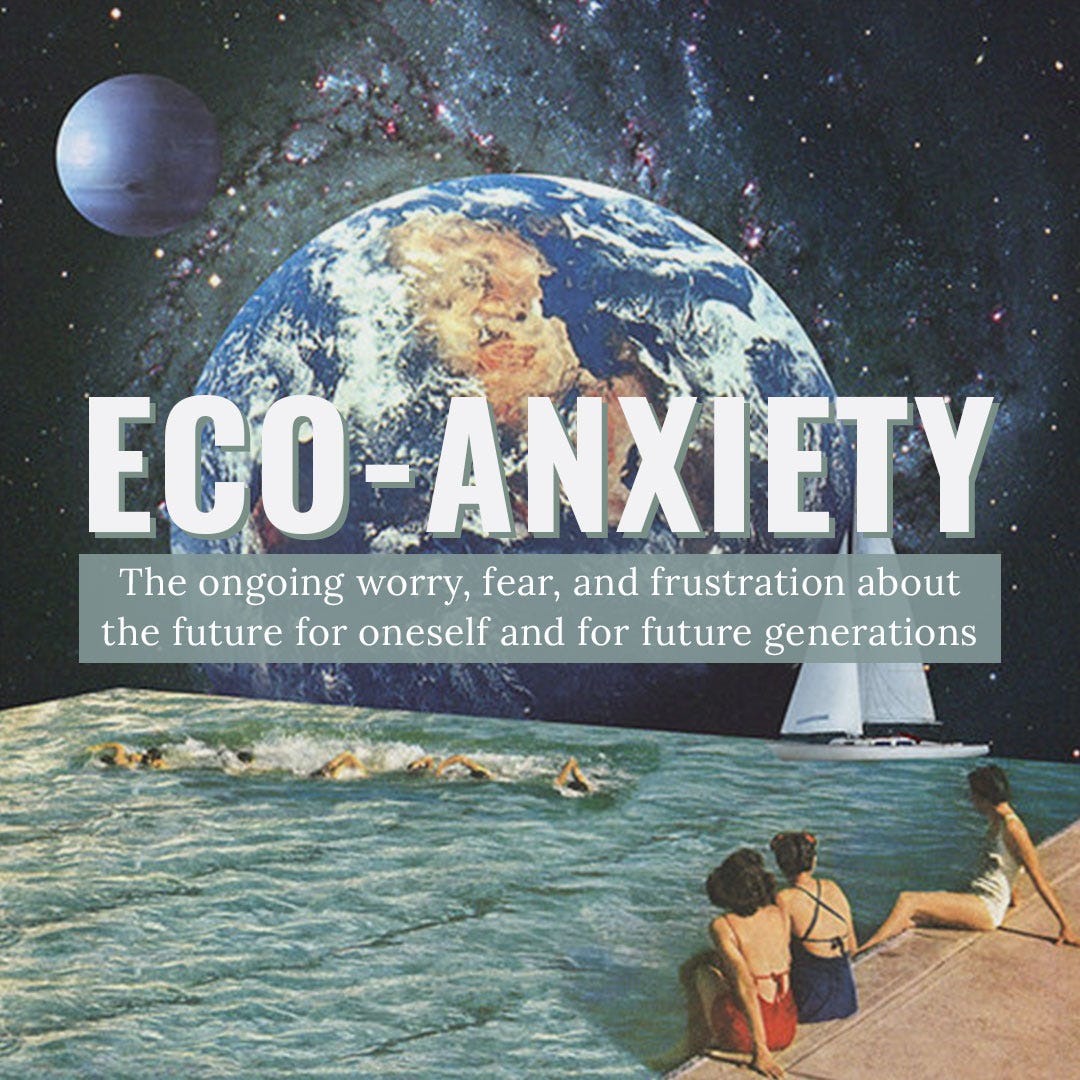Angry, terrified, and in despair.
These three words capture how many people are feeling because of climate change according to a recent report by the American Psychological Association, "Mental Health and Our Changing Climate: Impacts, Inequities, and Responses." A global study published in the Lancet found that nearly 6 in 10 people aged 16 to 25 were very or extremely worried about the fate of the planet, nearly half of them reported climate distress or anxiety affecting their daily lives, three-quarters agreed that "the future is frightening," and over half are convinced that "humanity is doomed."

The health of the planet is deeply connected to our mental health. While people who are directly affected by environmental disasters and climate change are at the greatest risk of developing mental-health issues, many who aren't in the line of fire are suffering as well. Increased awareness of the looming threats to the environment and bearing witness to the current changes is psychologically distressing. Watching the toll of these irreversible changes on the planet can lead to what is known as eco-anxiety: the ongoing worry, fear, and frustration about the future for oneself and for future generations.
A sense of hopelessness and helplessness often accompany eco-anxiety and may even result in eco-paralysis. Resignation, guilt, and fatalism set in when we lose hope. Threats to the environment are so complex and widespread, sometimes it's hard to imagine that one person's actions can make a difference. Watching the devastation of a violent storm hundreds of miles away or seeing piles of trash in your neighborhood can feel equally intimidating. Where to begin? There isn't a simple answer.
Eco-anxiety is not something to be medicated or treated in the traditional sense. Unlike irrational worry that is characteristic of anxiety disorders, eco-anxiety is a perfectly rational response to a very real threat. Just because it is unpleasant doesn't mean it should be minimized or medicated.
On the contrary, it's a signal that we need to be paying attention and taking action. Negative emotions can be uncomfortable, but when we treat them as data and information, they can be a gateway to positive change.
While a lot may be beyond your personal control, look for everyday ways to contribute to the health of the environment. A report by the APA entitled "Mental Health and Our Changing Climate" recommends taking positive actions like walking or biking to work and using public transportation instead of driving. Not only are these actions good for the earth, they are also good for you. Whatever you do, make sure you are walking the walk. If you say you care about the planet, let your lifestyle reflect it. Use clean energy, buy local food when possible, use green products, and, last but not least, get to the voting booth.
The key is to balance hope and worry. As Christiana Figueres, an internationally recognized leader on global climate change argues, we must remain "stubbornly optimistic."






